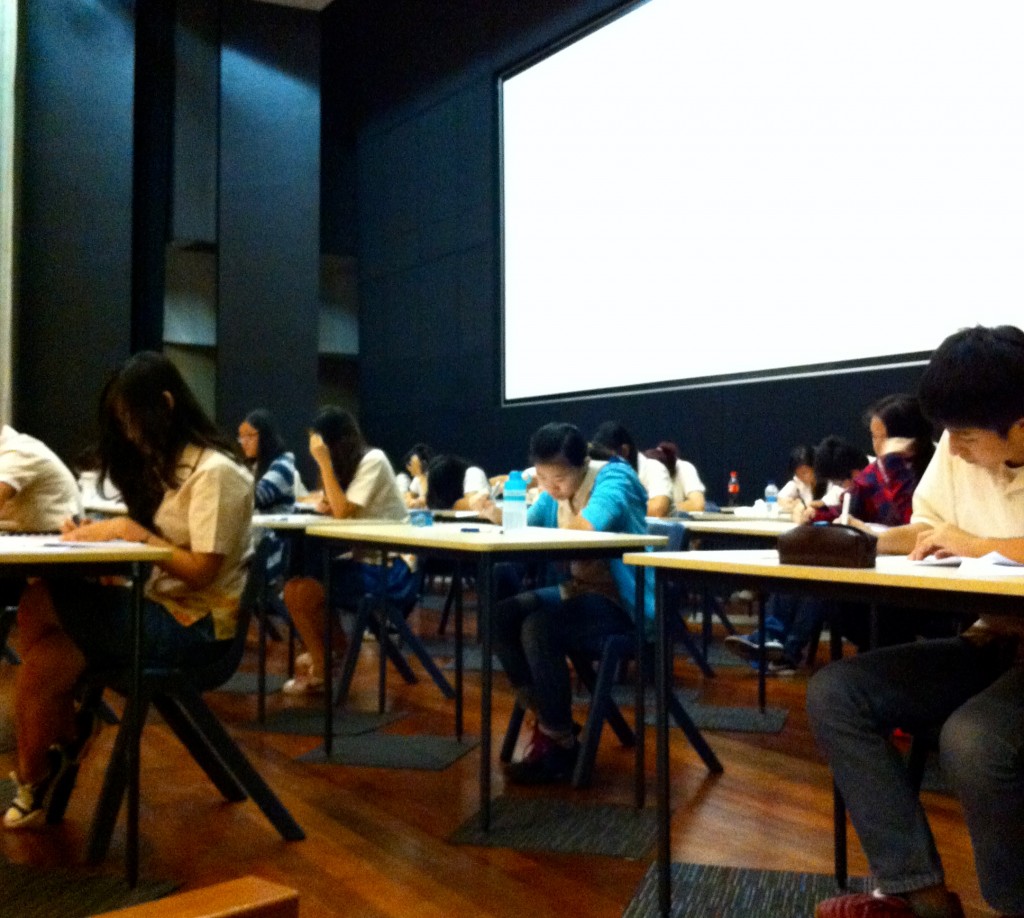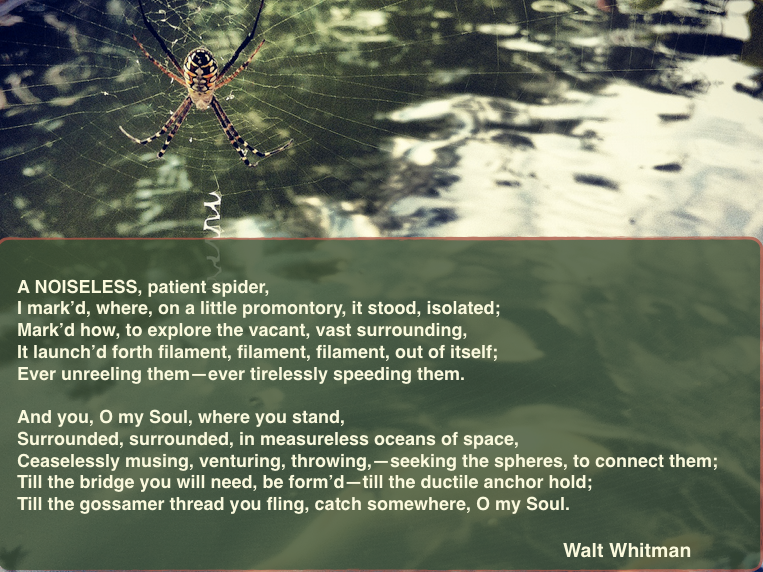A few days ago, I was bemoaning the existence of exams, (Glad to see I am not alone in my dislike of exams by the way.) when Adrienne, bless her heart, said something like:
Reality is not all fun and games.
The conversation continued with a bit more detail–about the need for balance of assessments, the value in creating timed conditions for students to illustrate learning as a way to deal with future anxiety and stress, so on and so on. It was a great chat as usual, but I won’t say much more about it here, in case I misquote what was said. The gist of it, at least for me, the part that stuck in my head, was the quote from above: Reality is not all #funandgames.
My first reaction, the one that sprung from my gut was, “Sure it is.” Or “It should be!” or “You wouldn’t say that to a six year old.” At which point, I remembered that I have a six year old at home, and I often catch myself saying things like Reality is not all #funandgames to her all the time! Reality check. Damn!
It is okay to make a huge mess, but we have to cleanup afterward.
Sometimes we have to do things we don’t want to do, so we can do the things we want later.
There is time for play, but there is also time to pay attention and work hard.
You get the point. I get the point of balance and hard work. I have swallowed the bitter pill of reality my fair share of times. I have sat through meetings. I have wallowed in bureaucracy. I have given exams; I have taken exams. I get it–life can suck, but we learn from it. We just have to do it.
We all know that as mature, competent, “successful” adults we need to balance our fun and work. We know, usually, when to suck it up and just do it, so we can kick back and enjoy other things. We have learned, through years of schooling and work and university and exams and tax papers and bank accounts and DMV lines that reality is not all fun and games. We have learned to navigate this reality, and for better or worse we function in it. We thrive in it even. But why do we compare learning with reality? With work? With chores? Why does learning become another chore we must slog through to get to the good stuff? Why can’t it be the good stuff? What if we created schools that exuded the idea that Learning is all fun and games and kept reality out of it all together? I know, I know balance, quantifiable results, assessments of learning, test scores, GPAs, university, back to reality!

cc licensed ( BY ) flickr photo shared by rolfekolbe
I guess what I am grappling with is–How successful are we as schools, teachers, and parents at instilling this balance in the people with which we interact? We can all litter our walls with Learner Profile posters and scream till our voices are hoarse about balance, but do we practice what we preach? For me, school has always been a place where Reality is not all #funandgames, and I have always wanted it to be Learning is all #funandgames. I hope I have been clear that I understand the value of both, but I think schools spend more time preparing students for a reality of exams and bureaucracy and work and taxes and things we dread, than inspiring in them a love of life and learning and creativity and art and fun. Not all schools, obviously. And yes, of course schools are doing amazing things like service learning, outdoor ed, drama, art and music programs, sports and many other things, but for some reason in the end, it all comes down to grades, achievement, scores, exams- preparation for Reality. We use words like rigor and excellence and college entrance to convince ourselves and our students that they need this, but do they really?
Can’t we teach students the value of hard work and learning and education free from the grip of academic reality? Can’t we focus on learning and fun and games and leave reality on hold for awhile, because let’s admit it, they will be dealing with it soon enough and for long enough. I think children who are confident, passionate and creative do not need exams to show understanding; they usually succeed anyway. But too often, we use academic rigor as the most important criteria for learning and success, and this leaves many children behind. I know, because I was one of them. I never took the game of school seriously. Yes, I took the exams, I played my part. Some I passed, some I failed. In the end I got a 3. something from some Ivy League school, but that was reality and it was not fun for sure. I played the game to get the degree, and now have over $30,000 of debt to show for it. The learning, the who I am, has always been from from doing. It was all fun and it still is.
How long before we can look back on this system of preparatory education and create institutions where students are not preparing for a reality they find boring and riddled with anxiety? A place where they are not taking exams, but traveling, building, creating, living. Where in short they are having fun and playing games, but at the same time working hard and learning? I want a new concept of school. I think this new school needs more fun and games and less exams.
How do you find this balance in your classroom, in your school? Am I wrong in devaluing academic rigor and examinations? Why do you find it valuable? Curious to hear your thoughts on any of my ramblings. Sorry it took me a while to find my point. Good thing this wasn’t some English exam, I would most likely have scored low for not having a clear thesis and topic sentences.
People say I’m lazy
Dreaming my life away
Well, they give me all kinds of advice
Designed to enlighten me
When I tell them that I’m doing fine
Watching shadows on the wall
Don’t you miss the big time, boy?
You’re no longer on the ball
I’m just sitting here
Watching the wheels go round and round
I really love to watch them roll…
John Lennon



